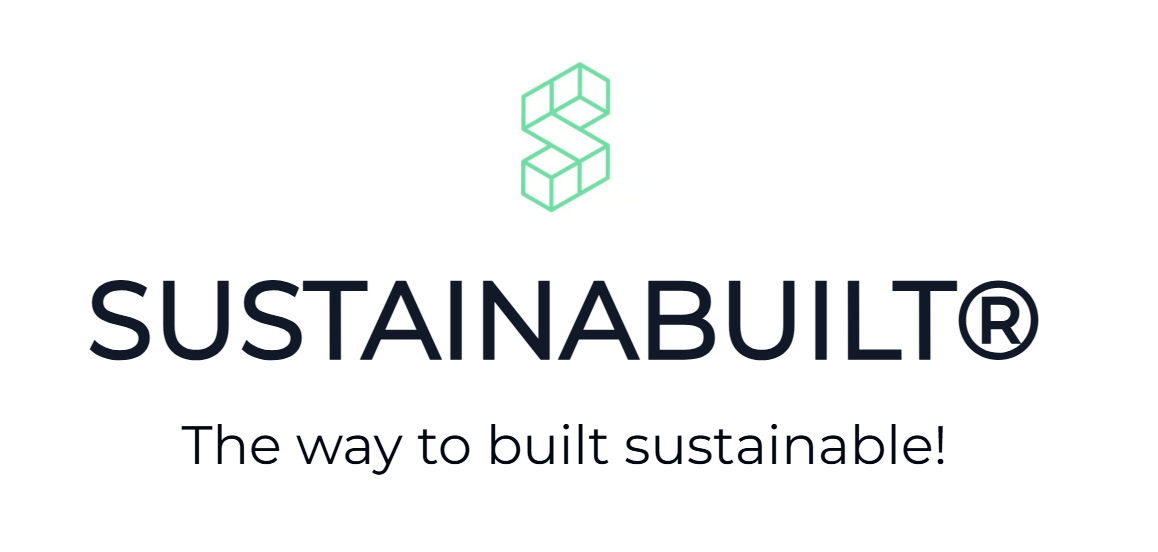- SUSTAINABUILT®
- Posts
- Building type E - a GAMECHANGER for serial and modular construction?
Building type E - a GAMECHANGER for serial and modular construction?
In today's newsletter, we focus on the new draft law "Building Type E" and its potential impact on the future of serial and modular construction.
About the Draft Law:
Building Type E is a new initiative aimed at simplifying and reducing costs in the construction industry, developed by the Bavarian Chamber of Architects. The "E" stands for "simple" or "experimental." The goal is to simplify construction by reducing complex norms and technical regulations without neglecting fundamental protection goals such as structural stability, fire protection, and healthy living conditions (Bundesarchitektenkammer e.V.) (BYAK).
The draft proposes that builders and planners can individually agree on deviations from certain construction standards, such as sound insulation, building services, or parking requirements. This is intended particularly for knowledgeable clients and is meant to supplement existing building classes, not replace them (do up) (DABonline | Deutsches Architektenblatt).
The first 19 pilot projects in Bavaria, launched in December 2023, include various residential projects, schools, and an administrative building. These projects will be scientifically monitored to evaluate their impact on construction costs, construction time, and technical complexity (BYAK) (NaturePlus).
This initiative is also supported at the federal level and could play a significant role in addressing challenges in the German construction sector, such as housing shortages, rising construction costs, and the need for sustainable building practices (Einfaches Bauen: Referentenentwurf für Gebäudetyp E (immobilienmanager.de) at 13.07.2024)
"The Building Type E law essentially proposes three changes to construction contract law: (1) the concept of 'recognized rules of technology' is to be more precisely defined. The aim is to ensure that pure comfort standards are generally not classified as 'recognized rules of technology'; (2) furthermore, in contracts between expert entrepreneurs, deviation from 'recognized rules of technology' should be facilitated; (3) finally, deviation from 'recognized rules of technology' should no longer automatically be considered a defect." (Einfaches Bauen: Referentenentwurf für Gebäudetyp E (immobilienmanager.de) accessed on 13.07.2024)
What Positive Impacts Does the New Building Type E Law Have on Serial and Modular Construction?
By simplifying and reducing construction norms and regulations, material usage can be decreased. This leads to lower construction costs and material consumption. As a result, not only are construction costs reduced, but resource consumption is also minimized, which in turn reduces environmental impact. (NaturePlus) (do up).
Furthermore, Building Type E promotes innovative and resource-efficient construction methods by providing builders and planners the opportunity to implement experimental and sustainable approaches that would otherwise be restricted by strict regulations. Examples include the use of alternative materials such as wood and lightweight concrete, as well as innovative building concepts that require less energy and resources (BYAK) (NaturePlus).
The flexibility to deviate from certain technical standards significantly eases the implementation of sustainability concepts. This allows for the adoption of sustainable concepts such as Passive House technologies, the integration of renewable energies, and the design of energy-efficient buildings without resorting to excessive technical complexity. (do up) (DABonline | Deutsches Architektenblatt).
Additionally, the promotion of simple and flexible construction methods strengthens the circular economy, as buildings can be designed to be more easily dismantled, and the materials used can be reused or recycled. This contributes to sustainability and resource conservation (NaturePlus) (do up).
The pilot projects for Building Type E will be scientifically monitored to evaluate their impacts on sustainability, construction costs, and construction time. The insights gained will help improve sustainable building practices and promote their broader implementation. (BYAK) (DABonline | Deutsches Architektenblatt).
Conclusion
Overall, the Building Type E law supports sustainable construction by promoting flexibility and innovation, conserving resources, and reducing construction costs, while ensuring that fundamental safety and health standards are maintained.
The Building Type E law offers significant advantages for sustainable construction. By reducing construction costs and material usage, it promotes a lower resource consumption and a more environmentally friendly approach to building. Additionally, it enables the implementation of innovative and resource-efficient construction methods that would otherwise be restricted by strict regulations.
The flexibility in implementing sustainability concepts, such as Passive House technologies and renewable energies, is also enhanced. Moreover, the law supports the circular economy by making it easier to dismantle and reuse materials. The scientific monitoring of the pilot projects contributes to further improving sustainable building practices and promoting their broader implementation. Overall, the law fosters sustainability in the construction industry by allowing flexibility and innovation, conserving resources, and reducing construction costs while maintaining fundamental safety and health standards.
For offsite manufacturers, the new draft could offer significant added value for the further development of building systems. It also gives builders more flexibility in choosing alternative building materials.
Hallo, ich bin Martin Schuy
Seit Anfang 2020 bin ich in der Produkt- und Projektentwicklung im Bereich des seriellen und modularen Bauens tätig. Hierbei liegt mein Fokus auf bezahlbaren Bauen. In dieser Zeit habe ich vielfältige Erfahrungen in der Projektleitung sowie in Beratungsmandaten für die Nachverdichtung im urbanen Raum gesammelt.
In meiner letzten Position habe ich mich stark in die Produktentwicklung eines Holzbauwerks eingebracht und die Projektleitung für ein Bauvorhaben in Berlin mit ca. 70 Wohneinheiten sowie einer Kita und ambulanten Pflegestation in Holzmodulbauweise vollzogen.
Seit 2024 beschäftige ich mich mich Selbstständig bei SUSTAINABUILT® und CONTRACTING-ENERGY .
Mein Newsletter liefert Ihnen Content jeden Monat über die Top-Themen aus dem Bereich des seriellen und modularen Bauens. Melden Sie sich gerne an!
Want to work with us?
Let's discover potential and opportunities together in a non-binding initial meeting. During this appointment, we will take time exclusively for your concerns.
We will discuss your goals and the challenges you face in your day-to-day project business and determine together how we can support you.
Contact us for a personalized consultation and learn more about the benefits for your next project.
Arrange a free initial consultation now.
